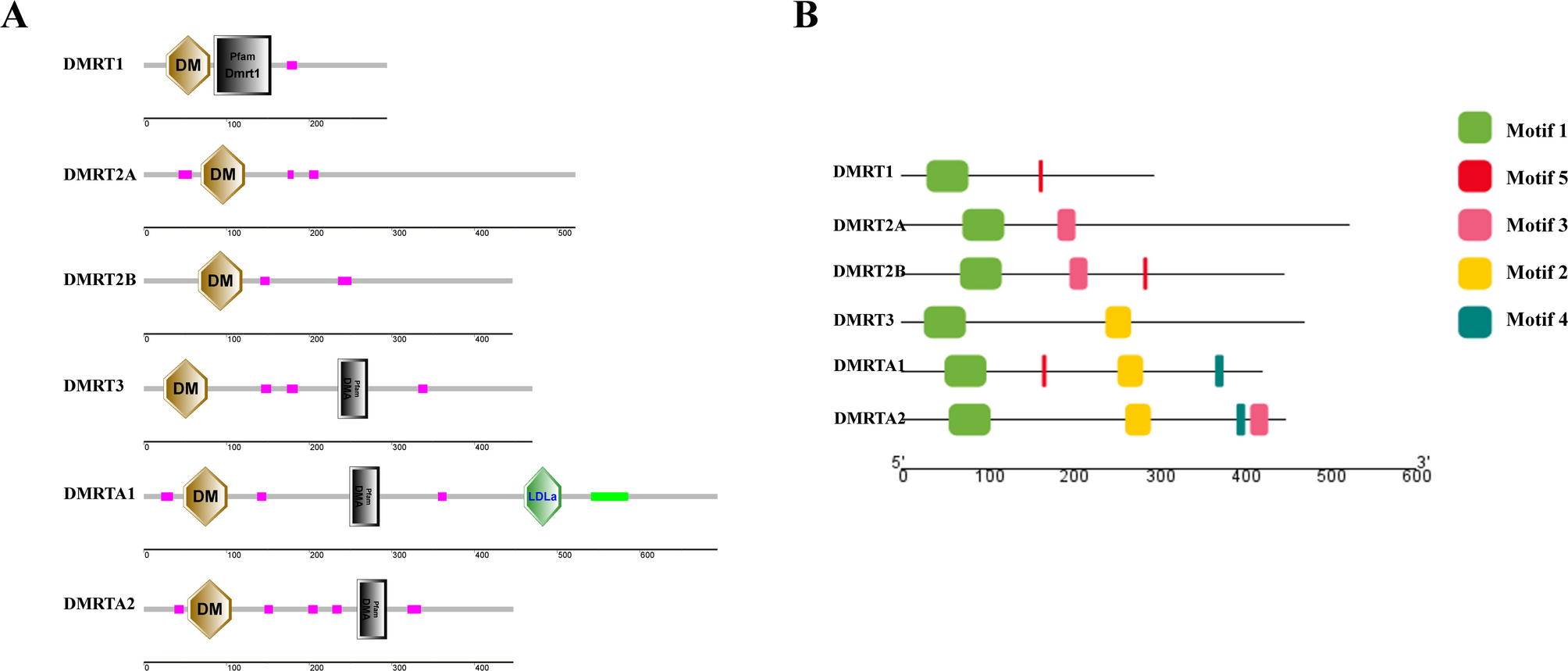COPENHAGEN, Denmark, October 29, 2025 – Pursuant to section 30 of the Danish Capital Markets Act, Bavarian Nordic A/S hereby announces that the Company has received notification from Morgan Stanley that they hold 5.20% of the shares and voting…
Blog
-

Over 400 items from Gene Hackman’s estate up for auction | Gene Hackman
Busts by Rodin and works by Kandinksy and Matisse are among some 400 items belonging to the late actor going up for auction next month.
Three Golden Globe statues, a variety of film memorabilia and annotated scripts, posters and an easel are also…
Continue Reading
-

Galaxy S26 Rumor Roundup: Samsung May Be Shaking Up Its Lineup
We’re likely only a few months away from the next Samsung Unpacked event and rumors are swirling about the Galaxy S26 line of phones. And boy, have they been all over the place. A few months ago, there was talk that Samsung would be replacing its…
Continue Reading
-

Squire Patton Boggs Advises GBG on Acquisition of DataTools
Squire Patton Boggs has advised GBG, a global identity technology business, on the acquisition of DataTools Pty Limited, a leading provider of address validation and data quality solutions in Australia and New Zealand.
The Squire Patton Boggs team was led by Corporate partners Louisa Hine (Sydney) and Giles Chesher (Manchester).
DataTools is one of the largest providers of address validation and data quality solutions in Australia and New Zealand (ANZ). The acquisition adds scale and deepens GBG’s existing address verification presence in ANZ and is complementary to GBG’s identity verification platform, enhancing its broader proposition in the region.
Continue Reading
-

An Evening in Hollywood: The Vogue100 Celebrates Women in Film
As Vogue descended upon Tinsel Town for the fourth annual installment of Vogue World—this year in support of the Entertainment Community Fund—Vogue100 gathered for an intimate evening honoring Women in Film. Founded in 1973, the organization…
Continue Reading
-

Schedule confirmed for 2026 IIHF Continental Cup Group C
Angers Ducs (FRA), SG Cortina (ITA), Gyergyoi HK (ROU), and HK Mogo (LAT) are set for the 2026 IIHF Continental Cup, Round 2, Group C.
The penultimate stage of the pan-European club competition will be held at Angers IceParc…
Continue Reading
-

AbbVie Announces Positive Topline Results from Phase 3 Pivotal Studies Evaluating Upadacitinib (RINVOQ®) in Adults and Adolescents with Vitiligo
AbbVie Announces Positive Topline Results from Phase 3 Pivotal Studies Evaluating Upadacitinib (RINVOQ®) in Adults and Adolescents with Vitiligo
- In two replicate Phase 3 studies, upadacitinib (RINVOQ®) achieved the co-primary endpoints of 50% reduction in Total Vitiligo Area Scoring Index (T-VASI 50) from baseline and 75% reduction in Facial Vitiligo Area Scoring Index (F-VASI 75) from baseline at week 481
- Both studies met key ranked secondary endpoints1
NORTH CHICAGO, Ill., Oct. 29, 2025 /PRNewswire/ — AbbVie (NYSE: ABBV) today announced positive topline results from two replicate Phase 3 studies evaluating the safety and efficacy of upadacitinib (RINVOQ®;15 mg, once daily in adult and adolescent patients living with non-segmental vitiligo (NSV).1 NSV, the most common form of vitiligo (occurring in over 90% of patients), is characterized by symmetrical and bilateral white patches on both sides of the body.2-4
“Vitiligo is more than a skin condition – it’s a chronic autoimmune disease that can deeply affect a person’s confidence, identity and daily life,” said Kori Wallace, M.D., Ph.D., vice president, global head of immunology clinical development, AbbVie. “There are no approved systemic medical therapies for achieving re-pigmentation in vitiligo. These Phase 3 results represent a significant milestone in AbbVie’s commitment to supporting patients and expanding our immunology portfolio to deliver innovative solutions.”
The Total Vitiligo Area Scoring Index (T-VASI) is a tool that measures the extent of de-pigmentation over the entire body while F-VASI measures de-pigmentation of the face, an area among the most visible and psychosocially impactful for people living with NSV. Across both studies approximately 70% of subjects had T-VASI > 10 at baseline. In both studies, upadacitinib achieved the co-primary endpoints of T-VASI 50 (≥50% reduction from baseline in T-VASI score) and F-VASI 75 (≥75% reduction from baseline in F-VASI score) at week 48 versus placebo. Across both studies, statistically significant differences were observed with upadacitinib versus placebo in key ranked secondary endpoints, including F-VASI 50 at week 48.1
Key efficacy results are summarized below:
Phase 3 Efficacy Results1
Study 1
Study 2
Upadacitinib 15 mg
(N=206), %
Placebo
(N=102), %
Upadacitinib 15 mg
(N=205), %
Placebo
(N=101), %
Co-Primary Endpoints
T-VASI 50 at week 48
19.4
5.9
21.5
5.9
F-VASI 75 at week 48
25.2
5.9
23.4
6.9
Secondary Endpoints
F-VASI 50 at week 48
48.1
12.7
43.4
12.9
“For many people living with vitiligo, the journey is marked by uncertainty, frustration and a lack of medicines that can treat the disease systemically,” said Thierry Passeron, M.D., Ph.D., professor and chair, Department of Dermatology, Université Côte d’Azur. “These positive results indicate that targeting the underlying inflammation may offer a systemic treatment option which could help patients achieve visible results.”
The safety profile of upadacitinib in both studies was generally consistent with that observed in approved indications. No new safety signals were observed. Across both studies, the most frequent treatment-emergent adverse events (TEAEs) in the 48 weeks upadacitinib treatment groups were upper respiratory tract infection, acne and nasopharyngitis. In study 1, treatment-emergent serious adverse events (TESAEs) occurred in 3.9% and 4% of patients in the upadacitinib 15 mg and placebo groups, respectively. In study 2, TESAEs occurred in 2% and 1% of patients in the upadacitinib 15 mg and placebo groups, respectively. There were no adjudicated cases of any major cardiovascular event (MACE) or venous thromboembolism (VTE) in the studies. Three malignancy events were reported: one was reported in both placebo groups (1% each) of studies 1 and 2, and one was reported in the upadacitinib 15 mg group (0.5%) in study 1 (genital neoplasm). There were no deaths reported in the upadacitinib treated groups across both studies. There was one death reported in the placebo group in study 2.1
Use of upadacitinib in NSV is not approved and its safety and efficacy have not been evaluated by regulatory authorities.
About Vitiligo
Vitiligo is a chronic autoimmune disease characterized by the loss of pigment-producing cells (melanocytes), resulting in white patches of skin that can appear anywhere on the body and at any time. It is the most common depigmenting disorder worldwide, affecting approximately 0.5% to 2.3% of the global population. Non-segmental vitiligo (NSV) is the predominant form of the disease, accounting for roughly 84% of cases. NSV typically presents as symmetrical, bilateral patches on both sides of the body. While location varies, many patients report patches on critical areas such as the face, feet, hands and groin. The daily challenges of living with vitiligo can lead to mental health conditions, with a high prevalence of depression and anxiety.About Viti-Up Clinical Trials
Upadacitinib M19-044 was conducted under a single protocol encompassing two replicate Phase 3 studies (Study 1 and Study 2) with independent randomization, investigative sites, data collection, analysis and reporting for each study. The trials were designed to evaluate the efficacy, safety and tolerability of upadacitinib in adult and adolescent patients (ages 12 and older) living with non-segmental vitiligo (NSV) who were eligible for systemic therapy. In Period A of both studies, participants were randomized in a 2:1 ratio to receive either upadacitinib 15 mg once daily or placebo for 48 weeks. Participants who completed Period A were eligible to enter Period B, a 112-week open-label extension in which all patients received upadacitinib 15 mg once daily. In total, Study 1 and Study 2 Periods A and B span 160 weeks. The two trials randomized 614 participants with NSV across 90 sites worldwide. More information on these trials can be found at www.clinicaltrials.gov (NCT06118411).The co-primary endpoints were based on the achievement of Total Vitiligo Area Scoring Index (T-VASI) 50, defined as at least 50% reduction in T-VASI from baseline, at week 48, and the achievement of Facial Vitiligo Area Scoring Index (F-VASI) 75, defined as at least 75% reduction in F-VASI from baseline, at week 48 with the treatment of upadacitinib 15 mg compared with placebo in adults and adolescents with NSV.
The secondary endpoints include the achievement of F-VASI 50, defined as at least a 50% reduction in F-VASI from baseline, at week 48, and the achievement of F-VASI 75, defined as at least a 75% reduction in facial vitiligo area from baseline, at week 24. These endpoints were designed to assess the degree and timing of re-pigmentation on the face, an area among the most visible and psychosocially impactful for people living with NSV. Study 1 also included an analysis using 3D digital imaging to assess facial repigmentation, measured in a subset of the study population.
About RINVOQ® (upadacitinib)
Discovered and developed by AbbVie scientists, RINVOQ is a JAK inhibitor that is being studied in several immune-mediated inflammatory diseases. In human leukocyte cellular assays, RINVOQ inhibited cytokine-induced STAT phosphorylation mediated by JAK1 and JAK1/JAK3 more potently than JAK2/JAK2 mediated STAT phosphorylation. The relevance of inhibition of specific JAK enzymes to therapeutic effectiveness and safety is not currently known.Upadacitinib (RINVOQ) is being studied in Phase 3 clinical trials for alopecia areata, hidradenitis suppurativa, Takayasu arteritis, systemic lupus erythematosus and vitiligo.
RINVOQ (upadacitinib) U.S. Uses and Important Safety Information5
RINVOQ is a prescription medicine used to treat:
- Adults with moderate to severe rheumatoid arthritis (RA) when 1 or more medicines called tumor necrosis factor (TNF) blockers have been used, and did not work well or could not be tolerated.
- Adults with active psoriatic arthritis (PsA) when 1 or more medicines called TNF blockers have been used and did not work well or could not be tolerated.
- Adults with active ankylosing spondylitis (AS) when 1 or more medicines called TNF blockers have been used, and did not work well or could not be tolerated.
- Adults with active non-radiographic axial spondyloarthritis (nr-axSpA) with objective signs of inflammation when a TNF blocker medicine has been used, and did not work well or could not be tolerated.
- Adults with giant cell arteritis (GCA).
- Adults with moderate to severe ulcerative colitis (UC) when 1 or more medicines called TNF blockers have been used and did not work well or could not be tolerated, or after taking a different injection or pill (systemic therapy) when your healthcare provider does not recommend TNF blockers.
- Adults with moderate to severe Crohn’s disease (CD) when 1 or more medicines called TNF blockers have been used and did not work well or could not be tolerated, or after taking a different injection or pill (systemic therapy) when your healthcare provider does not recommend TNF blockers.
It is not known if RINVOQ is safe and effective in children with ankylosing spondylitis, non-radiographic axial spondyloarthritis, ulcerative colitis, or Crohn’s disease.
- Adults and children 12 years of age and older with moderate to severe eczema (atopic dermatitis [AD]) that did not respond to previous treatment and their eczema is not well controlled with other pills or injections, including biologic medicines, or the use of other pills or injections is not recommended.
It is not known if RINVOQ is safe and effective in children under 12 years of age with atopic dermatitis.
It is not known if RINVOQ LQ is safe and effective in children with atopic dermatitis.
RINVOQ/RINVOQ LQ is a prescription medicine used to treat:
- Children 2 years of age and older with active polyarticular juvenile idiopathic arthritis (pJIA) when 1 or more medicines called TNF blockers have been used, and did not work well or could not be tolerated.
- Children 2 to less than 18 years of age with active psoriatic arthritis (PsA) when 1 or more medicines called TNF blockers have been used, and did not work well or could not be tolerated.
It is not known if RINVOQ/RINVOQ LQ is safe and effective in children under 2 years of age with polyarticular juvenile idiopathic arthritis or psoriatic arthritis.
IMPORTANT SAFETY INFORMATION FOR RINVOQ/RINVOQ LQ (upadacitinib)
What is the most important information I should know about RINVOQ*?
RINVOQ may cause serious side effects, including:
- Serious infections. RINVOQ can lower your ability to fight infections. Serious infections have happened while taking RINVOQ, including tuberculosis (TB) and infections caused by bacteria, fungi, or viruses that can spread throughout the body. Some people have died from these infections. Your healthcare provider (HCP) should test you for TB before starting RINVOQ and check you closely for signs and symptoms of TB during treatment with RINVOQ. You should not start taking RINVOQ if you have any kind of infection unless your HCP tells you it is okay. If you get a serious infection, your HCP may stop your treatment until your infection is controlled. You may be at higher risk of developing shingles (herpes zoster).
- Increased risk of death in people 50 years and older who have at least 1 heart disease (cardiovascular) risk factor.
- Cancer and immune system problems. RINVOQ may increase your risk of certain cancers. Lymphoma and other cancers, including skin cancers, can happen. Current or past smokers are at higher risk of certain cancers, including lymphoma and lung cancer. Follow your HCP’s advice about having your skin checked for skin cancer during treatment with RINVOQ. Limit the amount of time you spend in sunlight. Wear protective clothing when you are in the sun and use sunscreen.
- Increased risk of major cardiovascular (CV) events, such as heart attack, stroke, or death, in people 50 years and older who have at least 1 heart disease (CV) risk factor, especially if you are a current or past smoker.
- Blood clots. Blood clots in the veins of the legs or lungs and arteries can happen with RINVOQ. This may be life-threatening and cause death. Blood clots in the veins of the legs and lungs have happened more often in people who are 50 years and older and with at least 1 heart disease (CV) risk factor.
- Allergic reactions. Symptoms such as rash (hives), trouble breathing, feeling faint or dizzy, or swelling of your lips, tongue, or throat, that may mean you are having an allergic reaction have been seen in people taking RINVOQ. Some of these reactions were serious. If any of these symptoms occur during treatment with RINVOQ, stop taking RINVOQ and get emergency medical help right away.
- Tears in the stomach or intestines. This happens most often in people who take nonsteroidal anti-inflammatory drugs (NSAIDs) or corticosteroids. Get medical help right away if you get stomach-area pain, fever, chills, nausea, or vomiting.
- Changes in certain laboratory tests. Your HCP should do blood tests before you start taking RINVOQ and while you take it. Your HCP may stop your RINVOQ treatment for a period of time if needed because of changes in these blood test results.
Do not take RINVOQ if you are allergic to upadacitinib or any of the ingredients in RINVOQ. See the Medication Guide or Consumer Brief Summary for a complete list of ingredients.
What should I tell my HCP BEFORE starting RINVOQ?
Tell your HCP if you:- Are being treated for an infection, have an infection that won’t go away or keeps coming back, or have symptoms of an infection, such as:
̶ Fever, sweating, or chills
̶ Shortness of breath
̶ Warm, red, or painful skin or
sores on your body
̶ Muscle aches
̶ Feeling tired
̶ Blood in phlegm
̶ Diarrhea or stomach
pain
̶ Cough
̶ Weight loss
̶ Burning when urinating or urinating
more often than normal
- Have TB or have been in close contact with someone with TB.
- Are a current or past smoker.
- Have had a heart attack, other heart problems, or stroke.
- Have or have had any type of cancer, hepatitis B or C, shingles (herpes zoster), blood clots in the veins of your legs or lungs, diverticulitis (inflammation in parts of the large intestine), or ulcers in your stomach or intestines.
- Have other medical conditions, including liver problems, low blood cell counts, diabetes, chronic lung disease, HIV, or a weak immune system.
- Live, have lived, or have traveled to parts of the country, such as the Ohio and Mississippi River valleys and the Southwest, that increase your risk of getting certain kinds of fungal infections. If you are unsure if you’ve been to these types of areas, ask your HCP.
- Have recently received or are scheduled to receive a vaccine. People who take RINVOQ should not receive live vaccines.
- Are pregnant or plan to become pregnant. Based on animal studies, RINVOQ may harm your unborn baby. Your HCP will check whether or not you are pregnant before you start RINVOQ. You should use effective birth control (contraception) to avoid becoming pregnant during treatment with RINVOQ and for 4 weeks after your last dose.
- There is a pregnancy surveillance program for RINVOQ. The purpose of the program is to collect information about the health of you and your baby. If you become pregnant while taking RINVOQ, you are encouraged to report the pregnancy by calling 1-800-633-9110.
- Are breastfeeding or plan to breastfeed. RINVOQ may pass into your breast milk. Do not breastfeed during treatment with RINVOQ and for 6 days after your last dose.
Tell your HCP about all the medicines you take, including prescription and over-the-counter medicines, vitamins, and herbal supplements. RINVOQ and other medicines may affect each other, causing side effects.
Especially tell your HCP if you take:
- Medicines for fungal or bacterial infections
- Rifampicin or phenytoin
- Medicines that affect your immune system
If you are not sure if you are taking any of these medicines, ask your HCP or pharmacist.
What should I avoid while taking RINVOQ?
Avoid food or drink containing grapefruit during treatment with RINVOQ as it may increase the risk of side effects.What should I do or tell my HCP AFTER starting RINVOQ?
- Tell your HCP right away if you have any symptoms of an infection. RINVOQ can make you more likely to get infections or make any infections you have worse.
- Get emergency help right away if you have any symptoms of a heart attack or stroke while taking RINVOQ, including:
- Discomfort in the center of your chest that lasts for more than a few minutes or that goes away and comes back
- Severe tightness, pain, pressure, or heaviness in your chest, throat, neck, or jaw
- Pain or discomfort in your arms, back, neck, jaw, or stomach
- Shortness of breath with or without chest discomfort
- Breaking out in a cold sweat
- Nausea or vomiting
- Feeling lightheaded
- Weaknesses in one part or on one side of your body
- Slurred speech
- Tell your HCP right away if you have any signs or symptoms of blood clots during treatment with RINVOQ, including:
̶ Swelling
̶ Pain or tenderness in one or both legs
̶ Sudden unexplained chest or upper back pain
̶ Shortness of breath or difficulty breathing
- Tell your HCP right away if you have a fever or stomach-area pain that does not go away, and a change in your bowel habits.
What are other possible side effects of RINVOQ?
Common side effects include upper respiratory tract infections (common cold, sinus infections), shingles (herpes zoster), herpes simplex virus infections (including cold sores), bronchitis, nausea, cough, fever, acne, headache, swelling of the feet and hands (peripheral edema), increased blood levels of creatine phosphokinase, allergic reactions, inflammation of hair follicles, stomach-area (abdominal) pain, increased weight, flu, tiredness, lower number of certain types of white blood cells (neutropenia, lymphopenia, leukopenia), muscle pain, flu-like illness, rash, increased blood cholesterol levels, increased liver enzyme levels, pneumonia, low number of red blood cells (anemia), and infection of the stomach and intestine (gastroenteritis).
A separation or tear to the lining of the back part of the eye (retinal detachment) has happened in people with atopic dermatitis treated with RINVOQ. Call your HCP right away if you have any sudden changes in your vision during treatment with RINVOQ.
Some people taking RINVOQ may see medicine residue (a whole tablet or tablet pieces) in their stool. If this happens, call your HCP.
These are not all the possible side effects of RINVOQ.How should I take RINVOQ/RINVOQ LQ?
RINVOQ is taken once a day with or without food. Do not split, crush, or chew the tablet. Take RINVOQ exactly as your HCP tells you to use it. RINVOQ is available in 15 mg, 30 mg, and 45 mg extended-release tablets. RINVOQ LQ is taken twice a day with or without food. RINVOQ LQ is available in a 1 mg/mL oral solution. RINVOQ LQ is not the same as RINVOQ tablets. Do not switch between RINVOQ LQ and RINVOQ tablets unless the change has been made by your HCP.
*Unless otherwise stated, “RINVOQ” in the IMPORTANT SAFETY INFORMATION refers to RINVOQ and RINVOQ LQ.This is the most important information to know about RINVOQ. For more information, talk to your HCP.
You are encouraged to report negative side effects of prescription drugs to the FDA. Visit www.fda.gov/medwatch or call 1-800-FDA-1088.
If you are having difficulty paying for your medicine, AbbVie may be able to help. Visit AbbVie.com/PatientAccessSupport to learn more.
Please click here for the Full Prescribing Information and Medication Guide.Globally, prescribing information varies; refer to the individual country product label for complete information.
About AbbVie
AbbVie’s mission is to discover and deliver innovative medicines and solutions that solve serious health issues today and address the medical challenges of tomorrow. We strive to have a remarkable impact on people’s lives across several key therapeutic areas including immunology, oncology, neuroscience and eye care – and products and services in our Allergan Aesthetics portfolio. For more information about AbbVie, please visit us at www.abbvie.com. Follow @abbvie on LinkedIn, Facebook, Instagram, X (formerly Twitter) and YouTube.Forward-Looking Statements
Some statements in this news release are, or may be considered, forward-looking statements for purposes of the Private Securities Litigation Reform Act of 1995. The words “believe,” “expect,” “anticipate,” “project” and similar expressions and uses of future or conditional verbs, generally identify forward-looking statements. AbbVie cautions that these forward-looking statements are subject to risks and uncertainties that may cause actual results to differ materially from those expressed or implied in the forward-looking statements. Such risks and uncertainties include, but are not limited to, challenges to intellectual property, competition from other products, difficulties inherent in the research and development process, adverse litigation or government action, changes to laws and regulations applicable to our industry, the impact of global macroeconomic factors, such as economic downturns or uncertainty, international conflict, trade disputes and tariffs, and other uncertainties and risks associated with global business operations. Additional information about the economic, competitive, governmental, technological and other factors that may affect AbbVie’s operations is set forth in Item 1A, “Risk Factors,” of AbbVie’s 2024 Annual Report on Form 10-K, which has been filed with the Securities and Exchange Commission, as updated by its Quarterly Reports on Form 10-Q and in other documents that AbbVie subsequently files with the Securities and Exchange Commission that update, supplement or supersede such information. AbbVie undertakes no obligation, and specifically declines, to release publicly any revisions to forward-looking statements as a result of subsequent events or developments, except as required by law.References:
- AbbVie. Data on file ABVRRTI82042
- Ezzedine K, et al. Lancet. 2015;386(9988):74–84
- Mazzei Weiss ME. Cutis. 2020;105(4):189–90
- Ezzedine K, Lim HW, Suzuki T, et al. Revised classification/nomenclature of vitiligo and related issues: the Vitiligo Global Issues Consensus Conference. Pigment Cell Melanoma Res. 2012;25(3):E1-13
- RINVOQ [Package Insert]. North Chicago, IL: AbbVie Inc.; 2025
Contacts:
SOURCE AbbVie
Continue Reading
-

Genome-wide investigation of the dmrt gene family reveals new insight into the gonad development in Plectropomus leopardus: dmrt2a regulate the development of oocytes | Biology of Sex Differences
Kikuchi K, Hamaguchi S. Novel sex-determining genes in fish and sex chromosome evolution. Dev Dyn. 2013;242(4):339–53.
Google Scholar
Kang Y, Guan GJ, Hong YH. Insights of sex…
Continue Reading
-

Study provides first worldwide validation of new GLIS model in older patients with heart failure
With populations aging rapidly worldwide, heart failure has become one of the most pressing medical and social challenges. Older patients face not only a high mortality risk but also losses in muscle strength, mobility, and…
Continue Reading
-
PrimaLoft Unveils UltraPeak & a Reinvigorated Innovation Pipeline – Fitt Insider
- PrimaLoft Unveils UltraPeak & a Reinvigorated Innovation Pipeline Fitt Insider
- PrimaLoft launches its UltraPeak insulation and Rerun circular platform FashionNetwork.com
- UltraPeak performs like down Innovation in Textiles
- PrimaLoft Unveils the…
Continue Reading
